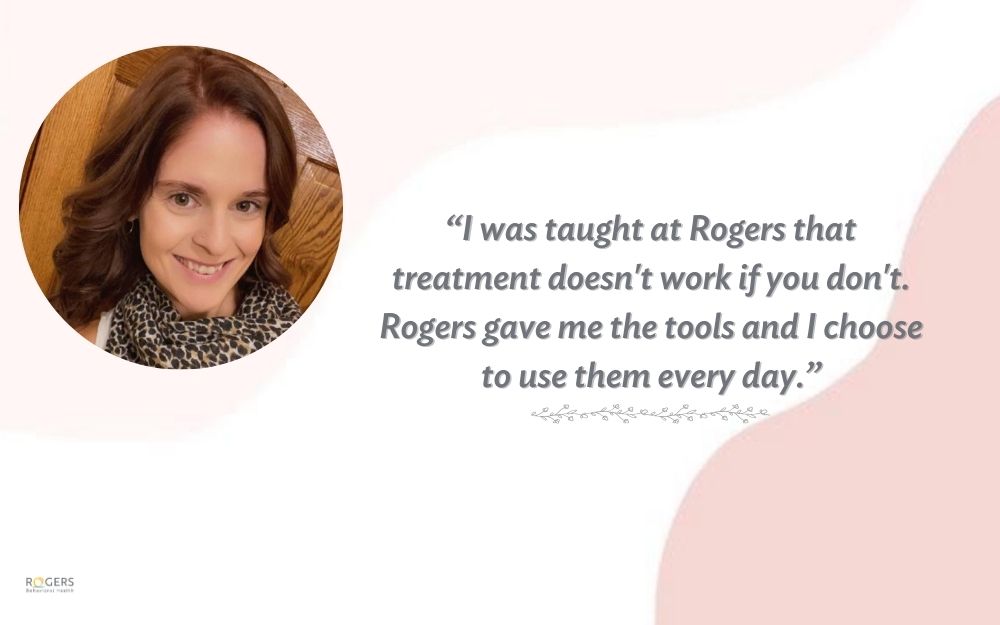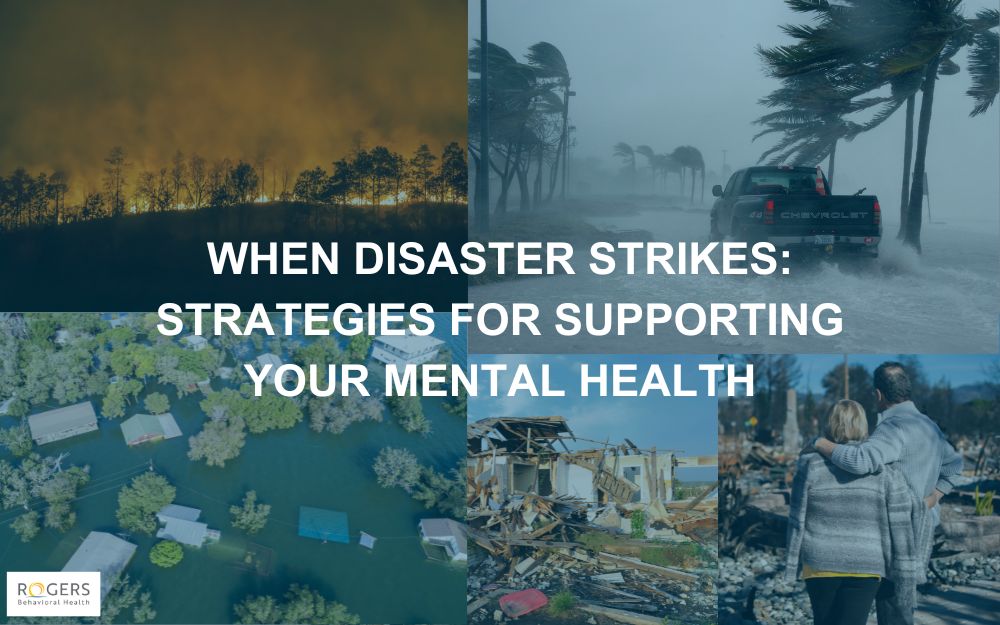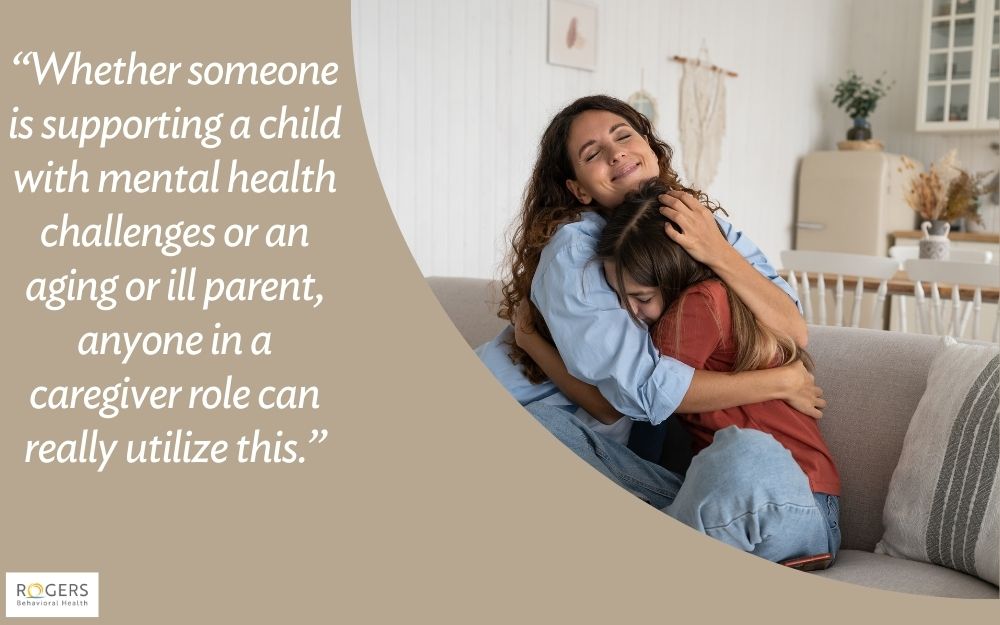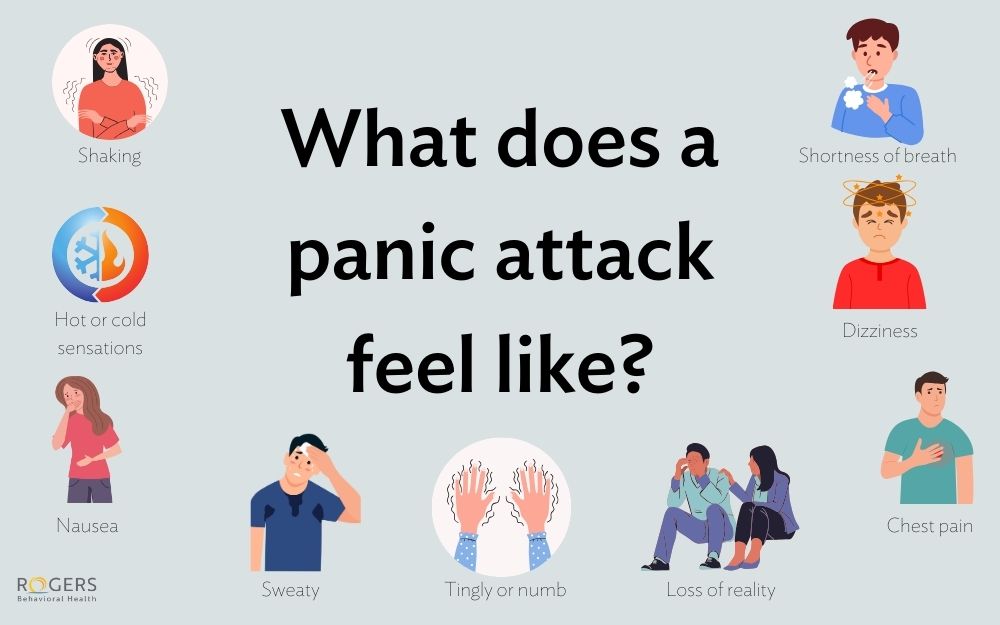Finding depression treatment at Rogers
Posted on 05/14/24 11:53:am
Share this article:
By Stephanie A. Goettl, former patient, West Allis Focus Depression Recovery
“In 2018, I started slowly inching toward daily thoughts of hoping I wouldn't have to go through another day. I actively sought ways to be away from everyone who loved me and hoped for some divine intervention to end my life, so I didn't have to.
Desperate, I tried online psychiatry, waiting for a magic medication, until one night I was screaming into the phone about my hope for an end to it all. That psychiatrist called Rogers; aware this could easily be my last few days on earth. The Rogers’ team quickly got me through the triage process and called to begin my program within 48 hours.
I don't even know how to begin explaining the way this program saved my life. I truly didn't want to be there the first few days. It felt stupid to rate how I felt and share emotion words, or sit with a therapist trying to relate this experience that felt too unique to ever begin to understand. Somehow though, I got in the car every day and went back. By week two, I couldn't wait to sit down one-on-one with my therapist, Brit, and go through the assignments. I sat through our time working on assignments, actively participating in my treatment, finally knowing it was possible to get better and want to live. People around me finally saw a difference in how I interacted with others and my ability to work through moments that are tough. I have learned trauma can be lifelong without being your life.”
Committed to mental health recovery and advocacy
"Since being discharged, I have been fully committed to my treatment plan. I see my therapist weekly and a psychiatrist monthly, and it is because the Rogers’ team made it clear my mental health is an ongoing commitment. I have become an advocate for access to mental health treatment for sexual assault victims, and I’ve worked to raise money for the rescue where I adopted my emotional support animal.
When my mental health was as bad as it was, I was forced to leave my graduate school program. Recently, I was accepted into another program where I am pursuing an MS in Communications. I hope to become a professional sexual assault victim advocate and work with foundations to receive better funding for mental health programs specifically designed to assist with the effects before and after reporting these traumatic incidents.
None of these things would be possible if I took my life those two years ago. I wouldn't own my home. I wouldn't be better at my job than I have ever been. I'd have missed the birth of my goddaughter and the last holiday with my grandma. I wouldn't have seen my brother safely home from the Marines, or celebrated five years of marriage. And, most of all, I simply wouldn't be here to take every day as it comes.
I'm not cured. There is no such thing. I wake up every day though. I would have fully credited the program but it's also my own success. I was taught at Rogers that treatment doesn't work if you don't. Rogers gave me the tools and I choose to use them every day. I will never cease my gratitude for that awkward first day in December 2021.”



